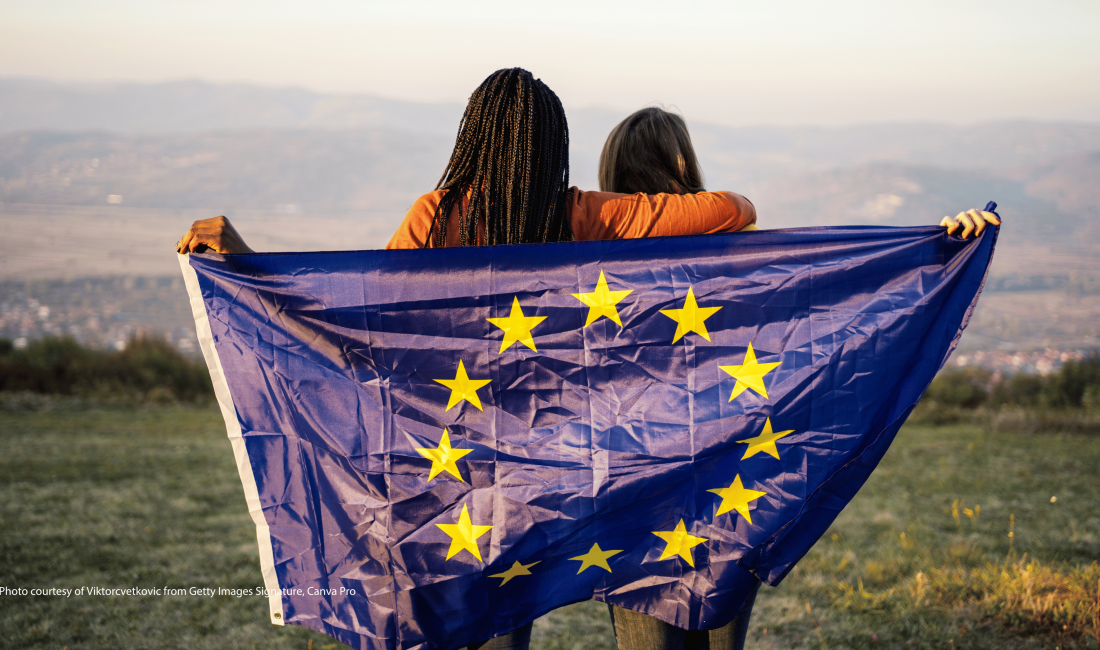There’s no easy way to say this: if the EU continues to stall on enlargement, it risks falling geopolitically behind.
In a world of hardened borders, shifting alliances, and democratic backsliding, the European Union has one powerful tool left to shape its geopolitical future: enlargement.
Too often, EU expansion is treated as a technical exercise—open chapter this, close milestone that. But the stakes are far greater. Enlargement is not just about integrating the Western Balkans or Ukraine. It’s about whether the EU can live up to its role as a global standard-bearer for democracy, stability, and the rule of law.
Enlargement is the EU’s strategic compass. Welcoming countries like Ukraine, Moldova, Georgia, and those in the Western Balkans is a strategic choice. It strengthens the Union from within and reaffirms the EU’s founding values. It’s an investment in a shared future.
In an age of rising authoritarianism and digital disinformation, when global power dynamics shift faster than Brussels can draft policy papers, the EU cannot afford to act like a fortress of hesitation. It must become a force of connection.
A broader EU means a more stable Europe, stretching from Lisbon to Kyiv, from Tallinn to Skopje. It means more shared markets, more democratic allies, and greater legitimacy on the world stage. And crucially, it signals to younger generations, inside and outside the Union, that democracy is not a relic of the past, but a living project worth fighting for.
Enlargement Is Complex—But Delay Is Dangerous
Nobody underestimates the scale of the task. Rule of law reforms, anti-corruption measures, minority rights, economic alignment—these are essential, difficult reforms. But here’s the hard truth: geopolitics doesn’t wait for accession chapters to close.
The Kremlin doesn’t pause for regulatory alignment. Authoritarian regimes don’t respect procedural timelines. If the EU wants to remain a credible global actor and democratic model, it must accelerate meaningful integration now—even before full membership is granted.
Five Ways to Turn Enlargement Into Reality Before Accession
The good news? There are immediate, tangible, and relatively simple steps the EU can take to integrate candidate countries and demonstrate that the door is open.
1. Free Roaming for All. Allowing candidate countries to access EU data roaming privileges would provide a direct, tangible benefit to citizens. It’s a simple move that can already be felt at someone’s next European vacation.
2. Open Access to EU-Funded Programs. Youth and civil society are the engine of democratic renewal. Giving students, young professionals, and activists in candidate countries full access to programs like Erasmus+ and CERV strengthens European values and helps shape the next generation of engaged Europeans.
3. Invite National Members of Parliament as Observers in the European Parliament. Political integration begins with familiarity. Bringing elected representatives from candidate countries into the room (literally) builds democratic alignment and mutual accountability.
4. Sectoral Integration into the Single Market. Candidate countries that meet reform benchmarks should be invited to integrate gradually into specific sectors such as energy, digital, or transport. This creates economic incentives for reform and shared interest in EU stability.
5. Include Citizens of Candidate Countries in EU-Wide Participatory Processes. Whether it’s Conferences on the Future of Europe, the European Citizen Panels, or digital dialogues, participation should extend beyond current member states. If we’re serious about co-creating Europe’s future, future citizens must have a seat at the table.
The Generation That’s Watching
If the EU fails to act, it risks alienating an entire generation in candidate countries. These are young people who grew up believing in the European dream. Many are still marching, organising, and voting in its name. If that belief is met with bureaucratic delay, the EU may not just lose their trust, it may lose their future membership altogether.
At the same time, youth within the EU need a reason to believe that Europe still matters. Enlargement, done right, offers a renewed sense of mission: a Europe that expands not through force, but through values. A Europe that opens doors to those who defend democracy - because democracy, by its nature, must expand to survive.
The EU Needs Enlargement As Much As Candidate Countries Need the EU
Enlargement must remain anchored in democratic values as well as matched by political courage, clear timelines, and visible progress.
Because if the EU doesn’t offer a credible future, someone else will offer an alternative—one without rights, without accountability, and without freedom.
The next phase of the European project will not be defined by slogans or summit declarations. It will be defined by action. Enlargement is no longer a question of if. It is a question of when—and more urgently, how soon.
The time to act is now. Not in another summit. Not in another decade.




